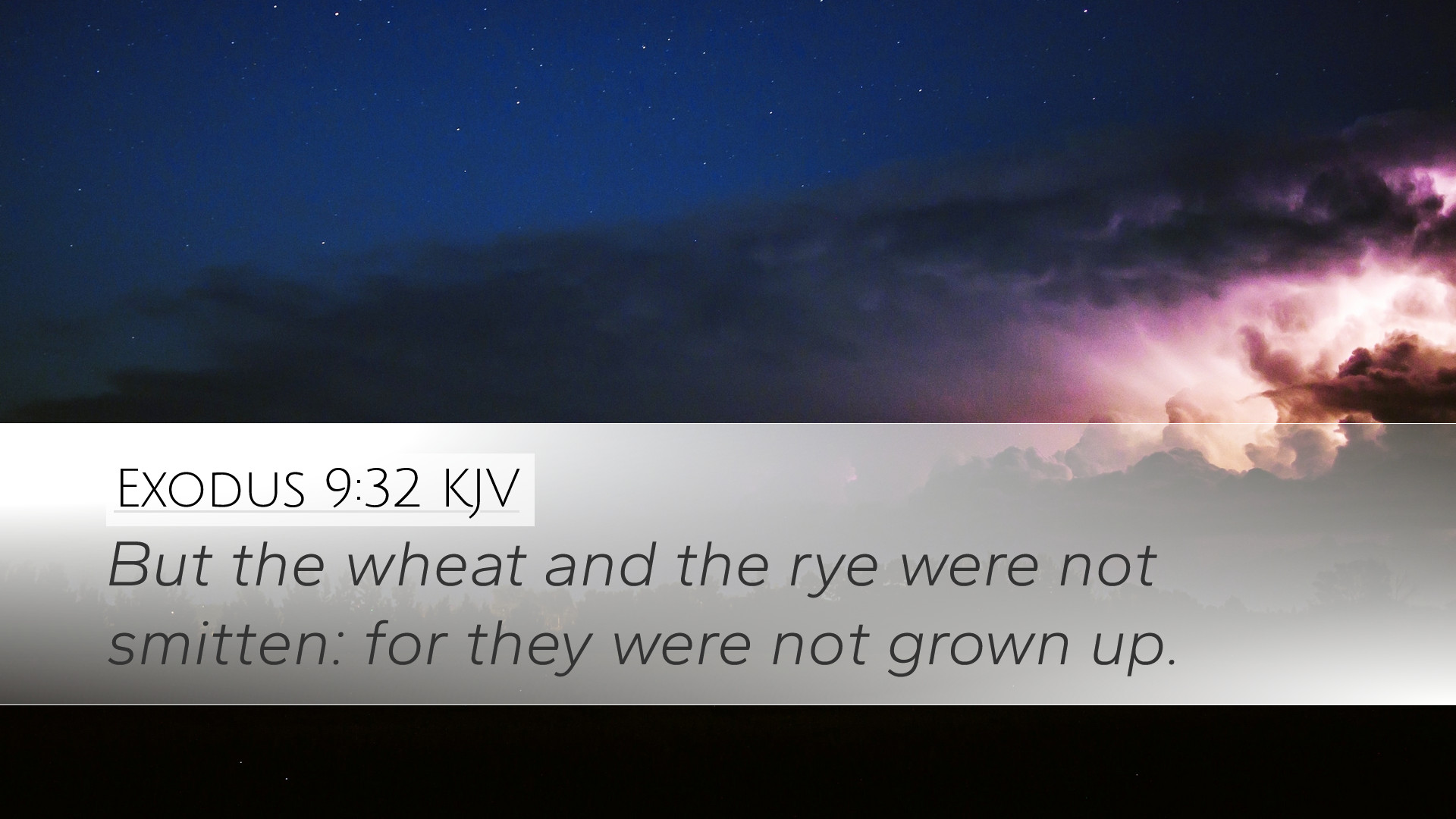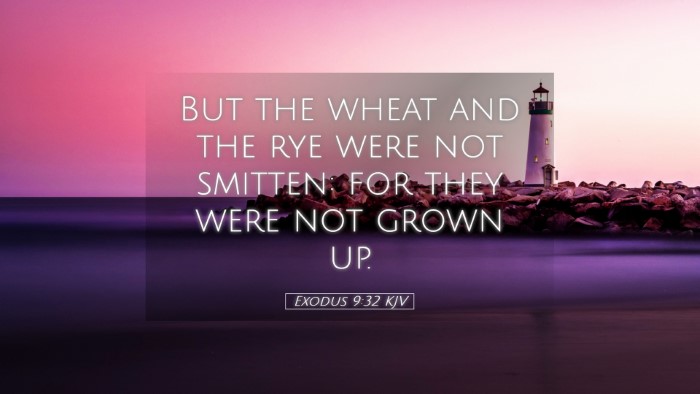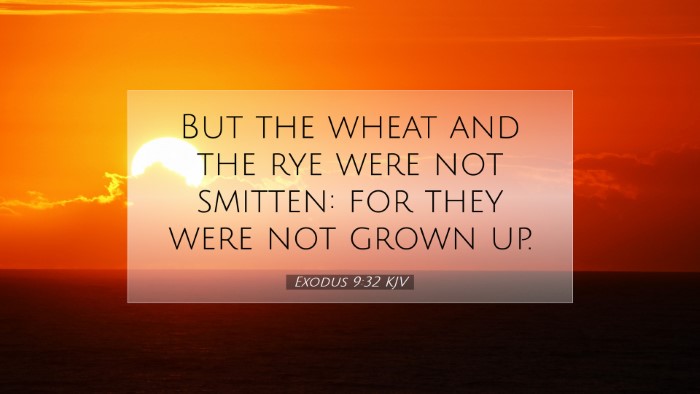Exodus 9:32 - Commentary Summary
Verse Insight: Exodus 9:32 states, "But the wheat and the spelt were not struck down, for they are late in coming up.” This verse occurs in the context of the plagues that God inflicted upon Egypt as a demonstration of His power and a call for Pharaoh to release the Israelites from slavery.
Contextual Analysis
This particular verse comes from the narrative of the seventh plague, the hail, which was a severe judgment that befell Egypt due to Pharaoh's hardened heart and refusal to heed God’s command. Understanding the environment surrounding this plague is crucial to its theological implications.
Historical Background
The Israelites were in Egypt under oppression, and God, through Moses, had come to set them free. This historical oppression sets the stage for the divine interventions that follow. The purpose of the plagues was not only to free the Israelites but to demonstrate God’s sovereignty over all creation.
Theological Reflections
Divine Sovereignty: The selective destruction of crops illustrates God’s ultimate control over nature. As Matthew Henry notes, “He has power over all elements, and can make them serve his purposes.” This brings to light the importance of recognizing God's sovereignty in our lives today.
Providence in Judgment: God's providence is evident, as not all crops were destroyed. Albert Barnes comments that the preservation of the wheat and spelt signifies God's mercy amidst judgment, reminding us that His grace often accompanies His wrath. This balance between mercy and judgment is a recurring theme throughout scripture.
Literary Structure
This verse serves as both a conclusion to the hail plague and a transition into subsequent plagues. It highlights the dichotomy between the crops that were destroyed and those that were spared, signifying God's deliberate actions.
Symbolic Meaning of Wheat and Spelt
Wheat: Often symbolizing sustenance, abundance, and God's provision.
Spelt: A type of grain mentioned less frequently, yet it represents resilience and the ability to thrive under pressure.
Adam Clarke suggests that the preservation of these grains serves as a metaphor for God’s people, who might also face trials but are ultimately preserved by His hand.
Application for the Modern Believer
In light of Exodus 9:32, several applications can be drawn for pastors, theologians, and students of the Word:
- Trust in Divine Providence: Just as God preserved the wheat and spelt, believers are encouraged to trust in God’s provision in their lives, even amidst trials and difficulties.
- The Importance of Obedience: The plagues serve as a reminder of the consequences of disobedience to God. This is a poignant lesson for both church leaders and laypeople alike.
- Hope in Judgment: There is an implicit promise of hope within judgment; believers can find comfort in knowing that God's mercy often accompanies His judgment.
Conclusion
Exodus 9:32 encapsulates key themes of divine judgment, mercy, and providence. The careful study of this verse through the lens of rich historical context and theological insights provides a well-rounded understanding beneficial for those engaged in the study of Scripture. The reflections from Matthew Henry, Albert Barnes, and Adam Clarke illuminate the significance of God’s power and mercy, inviting readers to trust in His plan for both their lives and creation.


